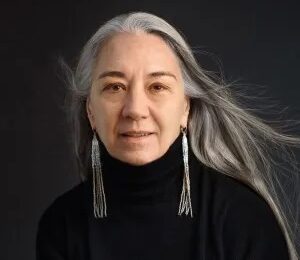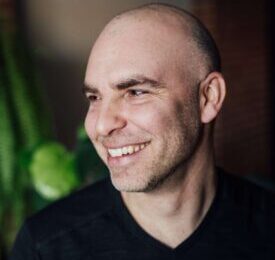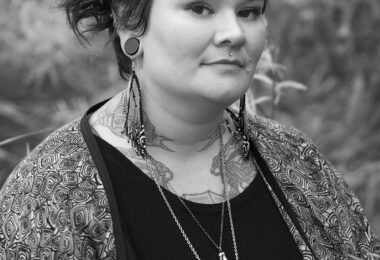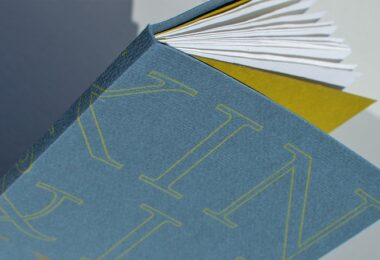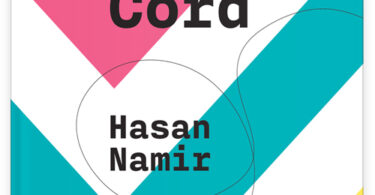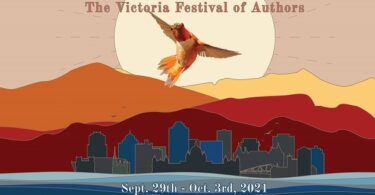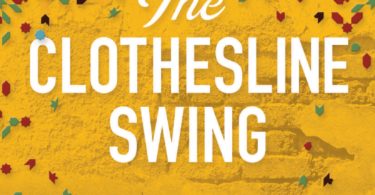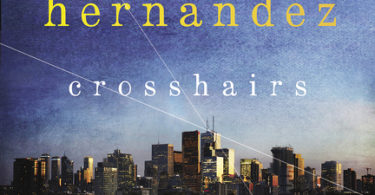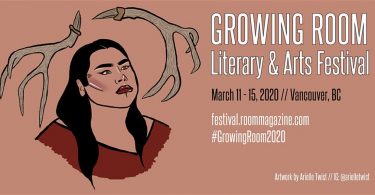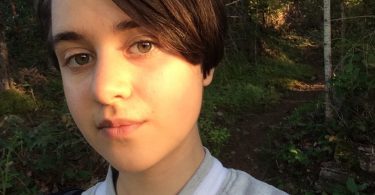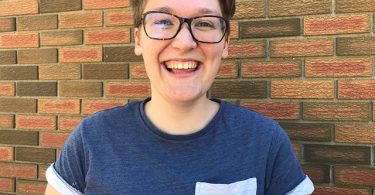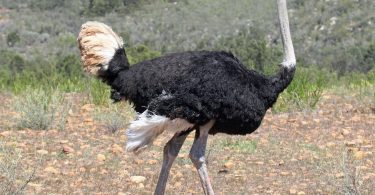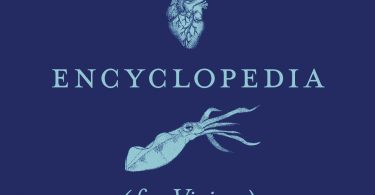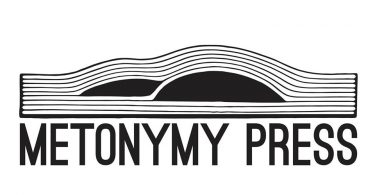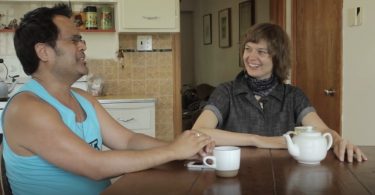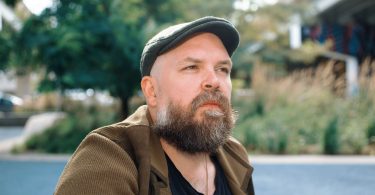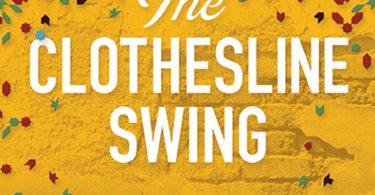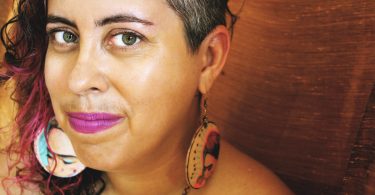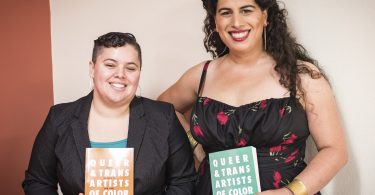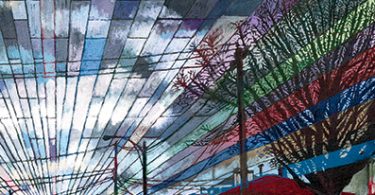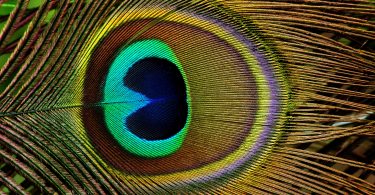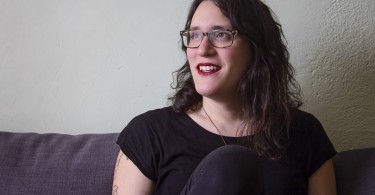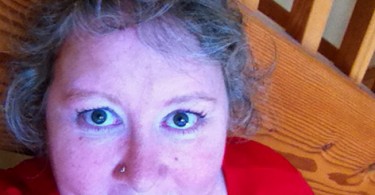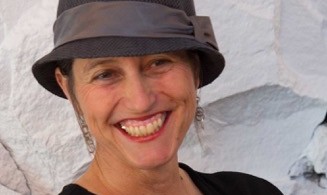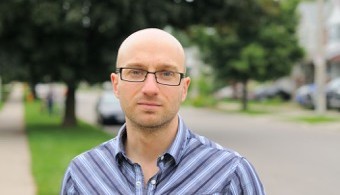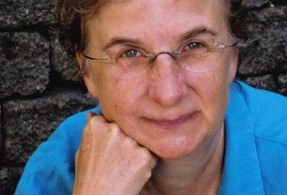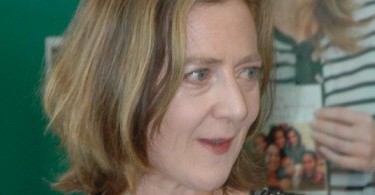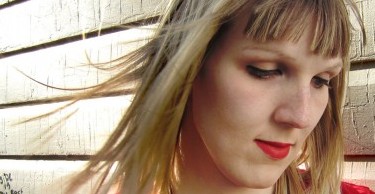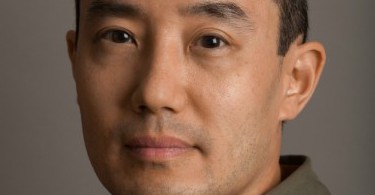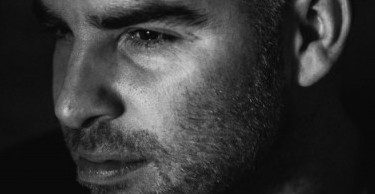Interview by L’Amour Lisik In connection with this year’s Victoria Festival of Authors taking place September 29 to October 3, Plenitude prose editor L’Amour Lisik interviews VFA panelist Hasan Namir on his latest collection of poetry, Umbilical Cord. Birth, Death, the Restlessness In Between takes...
Category - Writers’ Room
Prairie Poetics: An Interview with Brandi Bird
Interview by Cara Nelissen In connection with this year’s Victoria Festival of Authors taking place September 29 to October 3, Plenitude reviews editor Cara Nelissen interviews VFA panelist Brandi Bird about their writing, the prairie landscape, and this year’s festival. maskotēw-askiy: a...
The Clothesline Swing: An Interview with Danny Ramadan
Interview by Rebecca Salazar In connection with this year’s free and virtual Victoria Festival of Authors taking place September 30 to October 4, Plenitude poetry editor Rebecca Salazar interviewed VFA panelist Danny Ramadan about his writing, fundraising work, and literary festivals. Queer...
Crosshairs: An Interview with Catherine Hernandez
Interview by L’Amour Lisik In connection with this year’s free and virtual Victoria Festival of Authors taking place September 30 to October 4, Plenitude prose editor L’Amour Lisik interviewed VFA panelist Catherine Hernandez about her second novel, Crosshairs. Hernandez is a proud queer brown...
Growing Room Literary & Arts Festival: An Interview with Shani Mootoo
Interview by L’Amour Lisik, associate prose editor In this interview with Plenitude prose editor L’Amour Lisik, Shani Mootoo talks about her participation in Room’s Growing Room Literary & Arts Festival (taking place March 11 to 15 in Vancouver) as well as her own writing and projects...
Sushi Tears: Youth Spotlight Interview with Emma Bishop
Interview by Rob Bittner Here is the final of four interviews and story excerpts as part of our Youth Spotlight project. For details on this series, see our original post. “Sushi Tears” by Emma Bishop chronicles the process of coming out while also interrogating gender norms in the context of...
To Be the Moon: Youth Spotlight Interview with Rhyan St. Louis
Interview by Rob Bittner Here is the third of four interviews and story excerpts as part of our Youth Spotlight project. For details on this series, see our original post. Rhyan St. Louis’s “To Be the Moon” utilizes a somewhat claustrophobic timeline along with earnest dialogue to create a palpable...
How I Didn’t Go to Mexico: Youth Spotlight Interview with James Cawkwell
Interview by Rob Bittner Here is the second of four interviews and story excerpts as part of our Youth Spotlight project. For details on this series, see our original post. “How I Didn’t Go to Mexico” by James Cawkwell is a narrative about coming out as queer and trans, and the consequences that...
The Ostrich Wife: Youth Spotlight Interview with Annie Bhuiyan
Interview by Rob Bittner Here is the first of four interviews and story excerpts as part of our Youth Spotlight project. For details on this series, see our original post. “The Ostrich Wife” by Annie Bhuiyan is a semi-autobiographical examination of what it means to feel uncomfortable as a...
Little Blue Encyclopedia: An Interview with Hazel Jane Plante
Interview by Emma Rhodes Hazel Jane Plante’s playful and poignant novel Little Blue Encyclopedia (for Vivian) sifts through a queer trans woman’s unrequited love for her straight trans friend who died. A queer love letter steeped in desire, grief, and delight, the story is interspersed with...
Impressions of a Small Press: An Interview with Metonymy
Interview by Nathaniel G. Moore In just a few short seasons, Metonymy Press has been getting the attention of readers, authors and the publishing world—and for good reason: the books are engaging, inclusive, thought-provoking, award-winning, and beautifully designed. Ashley Fortier and Oliver...
Queer As Fuck: A Video Interview
Interview filmed by Ulla Laidlaw, with videography by David Mesiha C. E. Gatchalian and Tanya Marquardt are two queer-as-fuck authors and theatre-makers. Settlers in Turtle Island, they were both raised on the traditional Indigenous territories of the West Coast (BC). Both were artistically reared...
The Unstable, Fluid Identity: An Interview with John Elizabeth Stintzi
Interview by Patrick Grace, managing editor John Elizabeth Stintzi is a non-binary writer and visual artist who was raised on a cattle farm in northwestern Ontario. A selection of their work is featured or forthcoming in Black Warrior Review, The Malahat Review, Ploughshares, and in their poetry...
Potatoes are Everywhere: An Interview with Matthew Walsh
Matthew Walsh’s debut collection of These are not the potatoes of my youth takes a long, hard look at what queer means to them and how the world has shaped them, set against the backdrop of their grandfather’s potato garden. Walsh’s poems talk one moment of coming out to their mother in a...
Plenitude invites you to submit to the first-ever “Rainbow Unicorn Stuffie Mix-tape Awesomeness Flash Writing Contest”!
Yes. That is really what it’s called. Guidelines: Send us your best fiction, non-fiction or prose poetry between 250 and 500 words. A moment, a deft scene, a life story—what can you do with this tight form? Open to all LGBTQ2+ identified writers. Maximum TWO submissions per writer. Submit as a word...
Diction and Punctuation as Momentum, with Emily Sanford
“This dance is not optional” propels readers along its dance floor with caesurae and enjambments. Can you comment on the poem as a literal (or metaphorical) dance, and describe how diction and punctuation bring momentum to your poetry? This piece came as a response to questions of...
The Many Stories One Can Carry: An Interview with Ahmad Danny Ramadan
Interview by Brett Josef Grubisic Ahmad Danny Ramadan isn’t afraid to challenge readers with The Clothesline Swing, his debut novel. Weaving together fantastic and magical tales with those that are heartbreaking, sobering, drunken, and decadent, Ramadan’s storyteller, an old man residing in...
An Interview with Leah Lakshmi Piepzna-Samarasinha
Interview by Rachna Contractor Leah Lakshmi Piepzna-Samarasinha is a queer femme sick and disabled Sri Lankan/Irish/Roma writer, performance artist, educator, and hellraiser. The Lambda and ALA Stonewall Award–winning author of Dirty River: A Queer Femme of Color Dreaming Her Way Home, Bodymap...
Nia King Documents the Histories of Queer and Trans Artists of Colour
Interview by Rachna Contractor Nia King is a queer, mixed-race artist and activist from Canton, MA (Wampanoag land), living in Oakland, CA (Ohlone land). She is the author of Queer & Trans Artists of Color, volumes 1 and 2, and the host and producer of We Want the Airwaves podcast. Find more of...
Confronting Secrets in Poetry, with Trenton Pollard
What effect do negatives (“I did not come with a clean slate”, “I do not want to be my father”) and double negatives (“I do not want to not be my father”) have in poetry that confronts secrets and confessions? Lately I’ve been thinking about the photography of Diane Arbus, and how her work has a...
Creating Mood through Setting, with Fawn Parker
Can you discuss the ways your poem “Dania” uses setting to influence mood? I feel that “Dania” uses setting to contrast the internal and external aspects of a relationship—in this case the couple’s private bathroom vs. the laptop as representation of the external. The...
Approaching Identity in Poetry, with Mitchell King
How do you approach identity and point of view in your poetry? Who am I and how do I see the world? My approach to identity and point of view is slippery—not solid until I discover the story that comes with it in the poem. When writing a poem I am taking control of the narrative and rebuilding the...
Finding a Voice in Creative Non-fiction, with Sierra Skye Gemma
In memoir, the narrator often speaks from a present place of knowing about a past event. In your creative non-fiction piece “Spare Change,” however, the voice is in character—the character being the person you were at that time. How do you decide on voice when writing non-fiction? What...
“An Act of Empathy and Imagination”: An Interview with Jane Byers
Interview by Matthew Walsh Writer Jane Byers’s latest collection, Acquired Community, is coming out this fall with publisher Caitlin Press. Byers’s work can be seen all over the city, and this self-described writer and poet has no intention of slowing down any time soon. Byers’s new...
Character in Detail, with Suzette Mayr
How do you develop character through detail? I think it’s so interesting how different writers use detail differently in order to convey character. Ernest Hemingway in a short story like “Hills Like White Elephants” portrays the two main characters almost entirely through dialogue, and through no...
Eight Tips for Writing a Thorough Book Review
by Rachna Contractor As reviews editor I receive many inquiries about how to write a book review; here’s a list of eight tips which I presented at the Plenitude magazine co-sponsored Queer Night of the Brockton Writers Series in July 2016. If you have more suggestions or questions feel free to...
“To Reflect and Refract the World Around Us”: An Interview with Jia Qing Wilson-Yang
by Kathleen Fraser Jia Qing Wilson-Yang is an author and musician whose writing has appeared in Bound to Struggle: Where Kink and Radical Politics Meet (ed. Simon Strikeback), Letters Lived: Radical Reflections, Revolutionary Paths (ed. Sheila Sampath), and Room magazine, and Metonymy Press...
Jes Battis, Regina
Lizards and Brokenhearts: Reading in the Teenage Wasteland As a teenager, I was terrified of the letters HQ. That was the call number given to gay literature at the public library, with its murky koi pond and drug dealing after dark. I’ve since come to love those two letters in tandem—a few of my...
Marcus McCann, Toronto
How could it be otherwise? I can’t keep a copy of Stan Persky’s Buddy’s: Meditations on Desire in the house. I make the same mistake: lending it to lovers—should I even call it lending?—and then, once I come to my senses, buying a replacement copy for myself. Lather, rinse, repeat. I feel like...
Rita Wong, Vancouver, Coast Salish Territories
“All this shouting and hollering won’t solve anything—it will only make us tired and enemies. We all have to live together in this village…” —from Her Head a Village by Makeda Silvera. Press Gang was a feminist press whose closing I still mourn to this day. Before it shuttered in 2002, it published...
Cathleen With, Vancouver
When I was younger there were three books that had great influence on me, for different reasons. The Handmaid’s Tale was one. And when I read it, I immediately started reading it again. Because there was a lesbian in it. Never mind she wasn’t the main character (though I often made the main...
Carrie Mac, Vancouver
It’s cruel to ask a writer to pick just one book, ever, for any reason. And so, in this case, I’m going with two—a particular pairing at a particular time. When I was sixteen, I gobbled up Anne Cameron’s backlist until I came to The Journey. I slowed down then, because I never wanted it to end. A...
Nicola Harwood, Vancouver
Romeo, Romeo, Where Art Thou? Before. I wander through the women’s bookstore in Toronto. My eyes fall on a title, Oranges Are Not The Only Fruit. I read the description, dip into the first chapter, and buy the book. My discovery of Jeanette Winterson comes early in her ascendancy and, really, it is...
Ron Schafrick, Toronto
I first read Denton Welch a few years ago. Actually, that’s not completely true. I read his short story “When I Was Thirteen” in Alberto Manguel and Craig Stephenson’s anthology Meanwhile, in Another Part of the Forest a good decade or so ago. It’s probably Welch’s most anthologized story, and it’s...
Sarah Ellis, Vancouver
Rose and Dorothy, by Roslyn Schwartz (better known for her “Mole Sisters” books), tells of a mouse and an elephant who are taken by one another: “Dorothy was larger than life to Rose and twice as charming.” Dorothy moves into Rose’s house. Dorothy is big in every way, loud, open...
Jodi Lundgren, Victoria
Sub-Rosa & Other Fiction, Catherine Bennett’s collection of poetic prose, couldn’t be more aptly titled. Sub–rosa means “in strict confidence, privately” and comes from the Latin for “under the rose,” an ancient symbol of secrecy. Not to mention female genitalia. Most contemporary English...
Casey Plett
Charlotte is crying and she looks up at me with big watery eyes. She says something really quiet. What? says Kate. Say it, Charlotte. You didn’t have a problem saying it ten minutes ago. Tell her. Charlotte cries and looks up at me and she is like a bird I saw once with a broken wing, hopping...
Craig Takeuchi, Vancouver
In addition to the compelling storytelling, something I particularly admire about Shyam Selvadurai’s Funny Boy is the structure of how the story unfolds. It slowly unfurls, chapter by chapter, from the politics within the microcosm of a children’s world to conflicts on the national level, and...
Daniel Allen Cox, Montreal
The Hard Return, a book of poems by Marcus McCann, is a lover that confesses into your mouth during sex. It creates space inside the reader; spelunkers through you, cool and disconnected, then suddenly seizes something precious. It creates a new and almost extrapolated kind of literary criticism...
Anna Nobile, Sechelt
I was in a magic realist phase, reading a lot of Latin writers, mostly women, in translation. I loved the way these writers defied North American literary conventions. Anything could happen: a broken hearted lover’s tears fell into batter and made all those who ate the cake sob inconsolably;...

